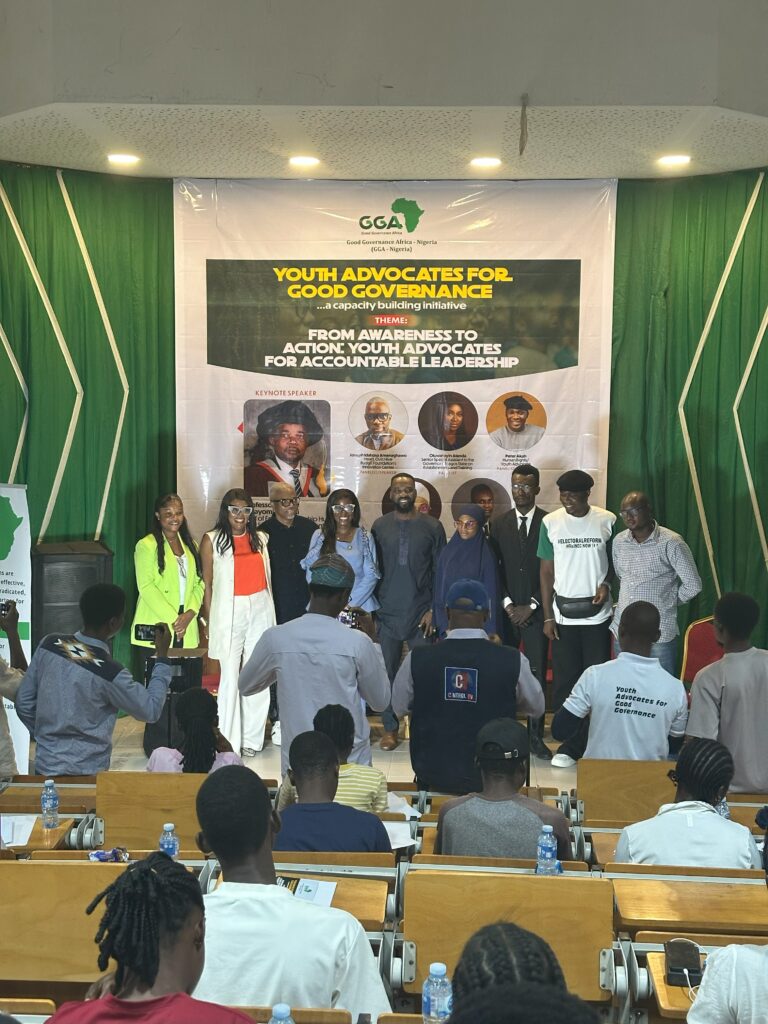As part of efforts to promote leadership accountability, Good Governance Africa (GGA-Nigeria), on Thursday, 26 June, played host to a dynamic gathering of young leaders and change-makers who came together for the Youth Advocates for Good Governance (YAGG) event at the University of Lagos (UNILAG) in Akoka.
The engaging platform brought together about 80 passionate individuals committed to promoting transparency, accountability, and good governance in their respective communities.
Through thought-provoking discussions and interactive sessions, participants explored innovative ways to drive positive change and contribute to ethical leadership in Nigeria, as the programme underscored the crucial role young people play in shaping the future of Africa’s governance landscape.
In his welcome address, Dr. Ola Bello, Executive Director of GGA-Nigeria, said the YAGG programme demonstrates GGA’s commitment to empowering young people to become agents of change.
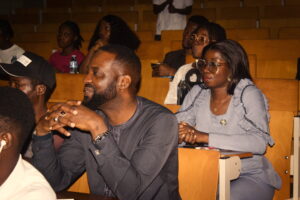
“We believe that our continent needs a new generation of leaders who prioritise public good and promote transparency, hence, our YAGG programme is designed to equip youths with the knowledge, skills and platforms to actively participate in governance, policy advocacy, and civic engagement.
“We expect our alumni to become advocates of ethical leadership. Between now and 2034, we will recruit one million young Africans, we will train and equip them with leadership skills and ethical values,” he said.
Dr. Bello added that he is confident that the YAGG programme will not only enhance young people’s understanding of governance issues but also inspire them to hold themselves and leaders accountable.
READ ALSO: Meet Ghanaian nurse raising the bar in cancer care
Speaking on the theme of the event, “From Awareness to Action: Youth Advocates for Accountable Leadership”, keynote speaker, Prof. Sunday Abayomi, a Professor of Entrepreneurship Hub and Strategic Management at the University of Lagos, emphasised the transformative power of innovation in empowering young advocates to hold those in power accountable.
“Innovative approaches help youth develop effective strategies to engage with policymakers, influence decision-making processes, and promote good governance. By embracing innovation, young advocates can empower citizens to demand accountability and transparency from their leaders,” he said.
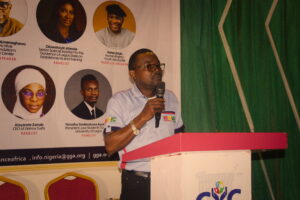
He also highlighted the importance of good character and ethical values in youth empowerment, saying “when young people demonstrate strong character and values, they are more likely to become responsible and effective leaders, capable of driving positive change.”
“You must stand up for what is right, even in the face of challenges,” the professor urged the attendees. “By embracing these character traits and values, young people can become powerful agents of change and accountability.”
Similarly, Joseph Idahosa Amenagbawo, head of Civic Hive BudgIT Foundation’s Innovation Centre, highlighted the critical role young people play in tracking budgets and procurement processes to promote transparency and accountability in governance.
According to Mr Amenagbawo, youths can leverage technology and data analysis to monitor government spending, identify irregularities, and advocate for more transparent and efficient use of public resources. By engaging in budget tracking and procurement monitoring, young people can help ensure that government funds are utilised effectively to benefit the broader society.
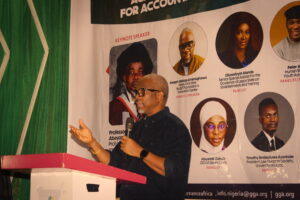
“There’s a need for more youth-led initiatives to promote transparency. By equipping young people with the skills and knowledge to track budgets and procurement processes, we can foster a more open and responsive government that serves the needs of all citizens,” he added.
During the panel session, Oluwatoyin Atanda, Senior Special Assistant to Lagos State Governor on Establishment and Training, Oluwatoyin Atanda, urged youths to consider their own contributions to societal development before demanding action from the government.
“Youths should assess their own roles and responsibilities in driving positive change. Critiquing government policies in a constructive manner can help identify areas for improvement and promote good governance.”
She also highlighted the value of active engagement and critical thinking in promoting development, saying when young people take ownership of their roles and responsibilities, they can contribute to creating a better society and hold leaders accountable for their actions.
On his part, Peter Akah, a human rights advocate in Nigeria, urged participants to take part in leadership roles. “Good or bad governance does not exist in a vacuum. Citizens are the collateral of bad governance. If youths are not interested in good governance, the country will not progress.”
Other panellists at the included Zainab Alayande, Chief Executive Officer of Zeinny Crafts and Timothy Ayorinde, President, Faculty of Law, University of Lagos. The young leaders urged attendees to be transparent and promote justice in their circle.
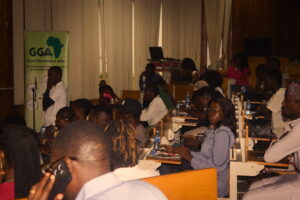
READ ALSO: These young Nigerians turn methane problem to opportunity
The event concluded with a call to action for young people to become more involved in governance. The attendees also shared their perspectives about the programme.
“I love GGA’s YAGG initiative and am proud to have been part of this programme. My take home today is that aside from blaming those in power, we also need to take action and be accountable within our small space,” said Yeni Adediwura, a final year Mass Communication student at UNILAG.
Another student who simply identified himself as Dara, a 200-level student of Statistics said “I learnt today that having like-minded youths, we can make Nigeria better. When I dressed up for the event and it started raining, I concluded I was not going to step out of the house. But I am glad I did after the rain. I look forward to having future engagements with GGA, particularly on this YAGG initiative.”
By empowering young leaders with the knowledge, skills, and networks needed to advocate for good governance, GGA is investing in a brighter future for the continent. The YAGG programme is a testament to the organisation’s commitment to fostering a new generation of leaders who will drive meaningful change.

